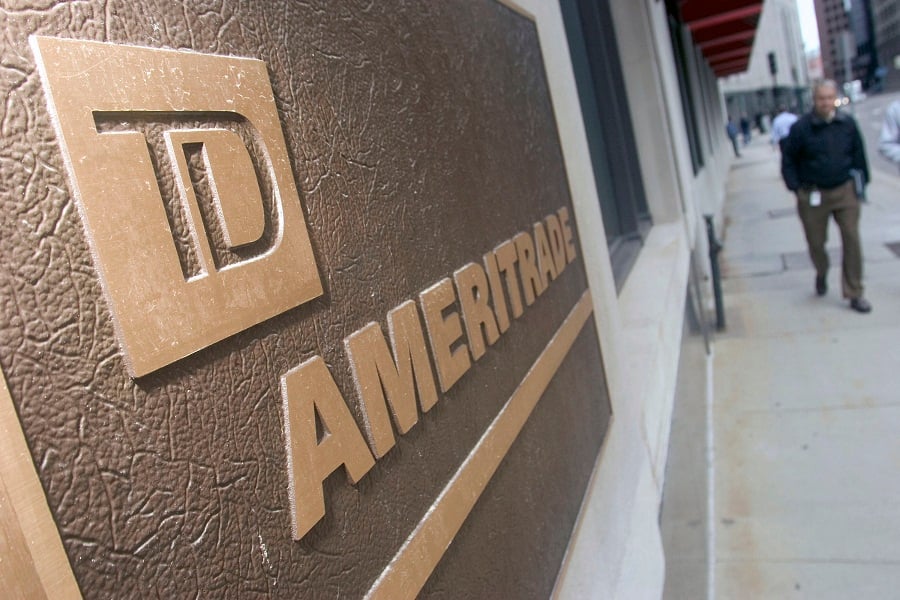

TD Ameritrade Holding Corp. showed the full impact of the inevitable commoditization of trading in its first quarterly earnings report since cutting trading commissions late last year.
The Omaha, Neb.-based custodian and brokerage platform reported a spike in various forms of organic business growth that was juxtaposed with higher advertising expenses and a 37% drop in profits for its fiscal first quarter ended Dec. 31.
While trading-commission revenue dropped by 39% on a quarter-over-quarter basis, the company focused on the spike in trading volume, “which helped offset a portion of the revenue impact from zero commissions,” Steve Boyle, TD’s interim president and chief executive, said in a prepared statement.
“History was made on the first day of our new fiscal year when the cost to trade went to zero for most trades, resulting in a new world in discount brokerage where price no longer clouds the comparison for trades,” Mr. Boyle said.
Even though trading revenue represented about 30% of TD’s overall revenues prior to the fee cuts, brokerage platforms are partially recouping some of those lost commissions by selling the data from their higher trading volume to interested buyers, including hedge funds and quantitative analysts that glean information from the trading patterns.
According to Mr. Boyle, in the first quarter, TD’s volume averaged 1 million trades per day for the first time in the company’s history.
The company reported 38 days during the first quarter when trading eclipsed 1 million trades, which compares to 23 days with more than 1 million trades for all of the previous fiscal year.
“Trading is up roughly 40% January to date, averaging 1.4 million trades per day,” Mr. Boyle said.
Pauline Bell, equity analyst with CFRA, said that the reduced trading revenue was expected, but that she did not anticipate the increased marketing and advertising expenses that TD, along with other brokerages offering free trades, are having to absorb to compete for market share.
“Until Ameritrade cut commissions, they relied on being a premium provider based on the price they were charging,” she said. “Now they have to market their name to compete.”
The increased advertising costs are among the reasons Ms. Bell reduced her full-year earnings per share estimate for the company by 3 cents, to $3.01 per share.
Meanwhile, she is raising her full-year price target for TD stock by $8 to $53, a decision based almost entirely on the expectation that TD will be acquired by Charles Schwab Corp. within the next six to 10 months.
“The price target is tied to the merger, and the market is pricing in an 80% probability that the merger happens,” Ms. Bell said. “Combined, those two companies will have a more than 50% market share on the institutional side.”
The $1 billion breakup fee that will have to be absorbed if either party walks away for nonregulatory reasons is further insurance that the deal will go through.
In addition to the 11% increase year-over-year in average client trades per day, client assets were up 23%, interest-rate sensitive assets were up 4%, and net revenues were up 15%.

Former Northwestern Mutual advisors join firm for independence.

Executives from LPL Financial, Cresset Partners hired for key roles.

Geopolitical tension has been managed well by the markets.

December cut is still a possiblity.

Canada, China among nations to react to president-elect's comments.
Streamline your outreach with Aidentified's AI-driven solutions
This season’s market volatility: Positioning for rate relief, income growth and the AI rebound
